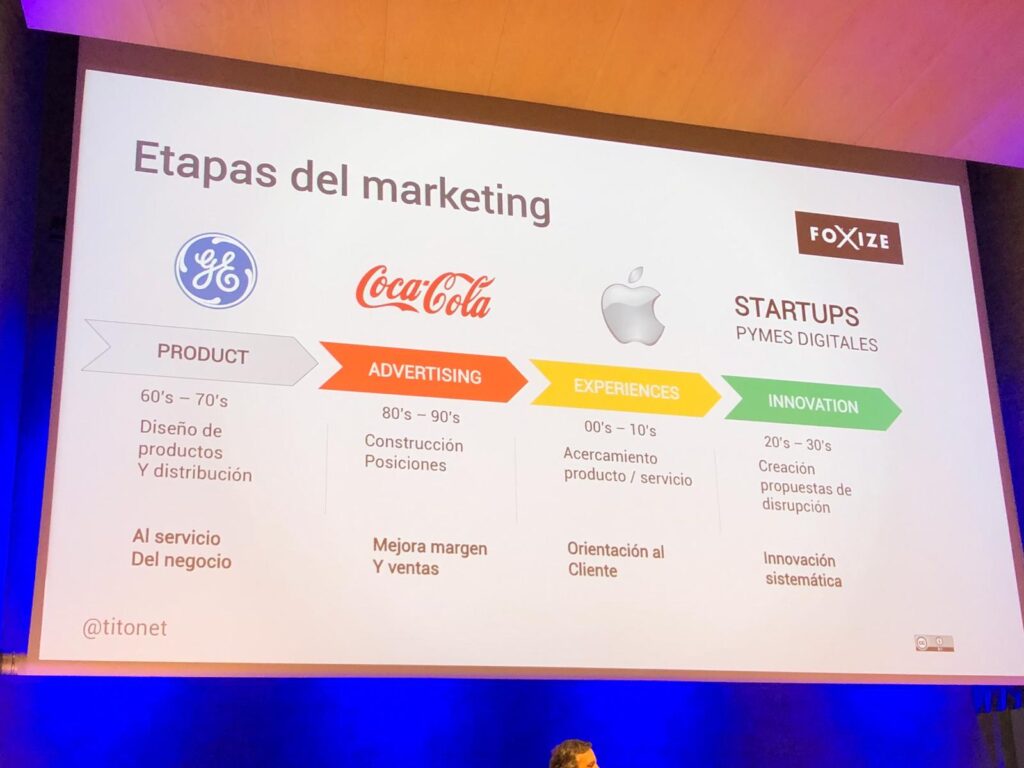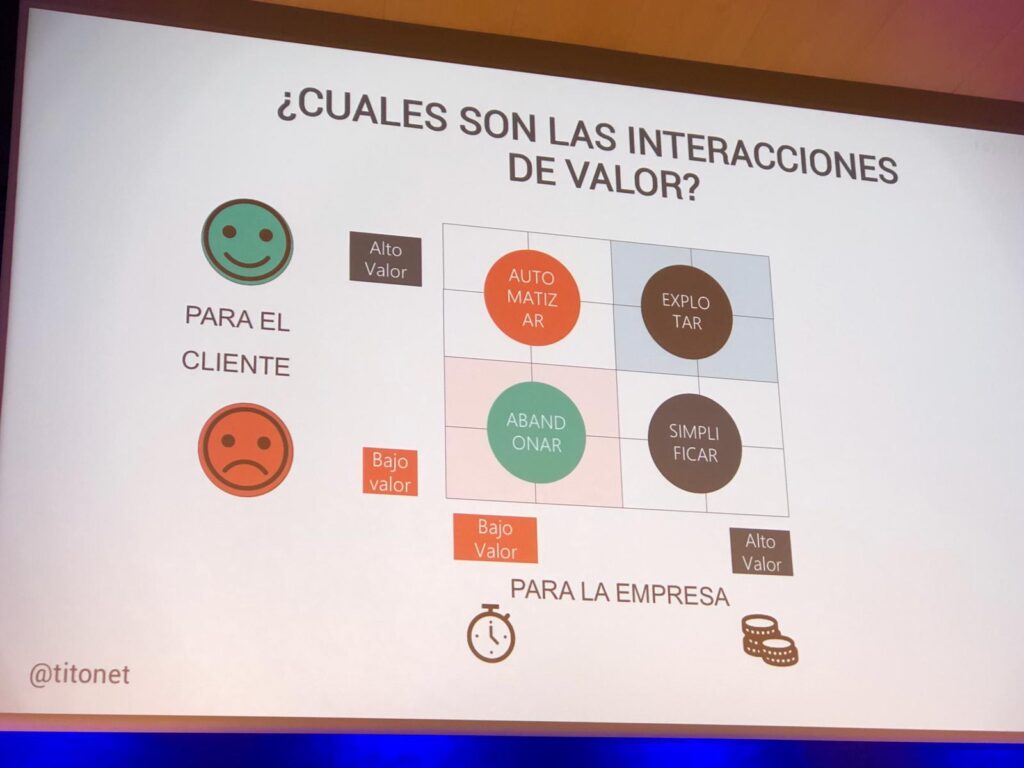Written by Fernando Maciá
Fernando de la Rosa (@TITONET) is the first speaker of the 100th edition of Clinic SEO, called Clinic Summit. And it begins with a provocative statement:
“What we say is digital marketing is not marketing.”
For Fernando, the Internet is the outdoors, a storm, a place where one feels insecure but has no choice but to move forward. References: The Cluetrain Manifesto, Infonomia.
In 1999, the Internet was a space of opportunities, freedom, creativity, knowledge, relationships. But a lot of things have happened.
We are working for four major companies: Google, Apple, Amazon and Facebook. Perhaps we should make a reflection: we have exposed that space of freedom and creativity. Is an ignorant or misinformed society better? We find that the Internet is dominated by digital monopolies where what is shared is NOT true and also increases cognitive bias. We read what the algorithms have decided we should read.
We have destroyed the Internet
The Internet is just one area of digital. It is part of something bigger. Internet does NOT equal digital. There are a lot of technologies that are producing a lot of changes. There are elements that are transforming society. WhatsApp brings us closer to the people we have far away and separates us from those we have close by.
We are in the middle of a huge wave that is transforming everything: society, relationships between people…. And we have to do digital marketing: content, social networks, digital advertising, SEO, SEM, etc. but we can’t cope with what is coming our way with these tools. These things are Internet communication, not marketing.
Rethinking digital marketing
Marketing was born in the 1960s with distribution companies such as General Electric. Then came the golden age of advertising, thanks to Coca-Cola. Then came the experience, with Apple as a reference. And finally, digital start-ups with systematic innovation, customer orientation, margin and sales improvement and service to the business.
Digital marketing is about adding technology to traditional marketing: we reduce errors and personalize on a large scale.
Five steps to marketing management:
- Tell me how many segments you manage and I will tell you your marketing level: why do they buy from you, do you have each segment distributed: active, inactive, interested, enthusiasts, fans…? Marketing is about segmenting and this leads to selling more. Which is your most valuable customer?
- How digital are your customers? Do they buy online, repeat purchase…? This tells you which ones are most valuable.
- Tell me how much automation you have in customer relations: we can automate processes to focus on the points where we do add value. Let’s exploit what generates the most value for the customer. How many low-value interactions can we automate so as not to waste time with them?
- The more segments you manage, the easier it is to create new value propositions. The better we know our customers, the more new and better products or services we can offer to the customer. Now we offer you this, it is clear to us that in the future we will have to offer you this, and along the way we will add something else.
- Tell me what your ecosystem is and I will tell you your degree of digitization: we alone cannot do it. Either you connect and collaborate or you can’t meet needs. We have a deficit in information sharing. Now we share much less. No one comments anymore. We keep more than we share. It is difficult to collaborate if there is no supply and demand. And we have to collaborate by sharing the client’s budget.
We have destroyed the creative space of the Internet with all the possibilities it had. There are companies that have done barbarities and now we are paying for it.
Digital is getting smaller: we have to talk about the digital era, which will be much bigger, how is it going to affect work, what about digital monopolies, what are the consequences? We don’t think about it much.
“Indeed, on reflection we should be thinking about one of the Sustainable Development Goals.” There is an extra element: be good. There are times when you have to say no: there are customers who do not promote anything good.
We must start building.


